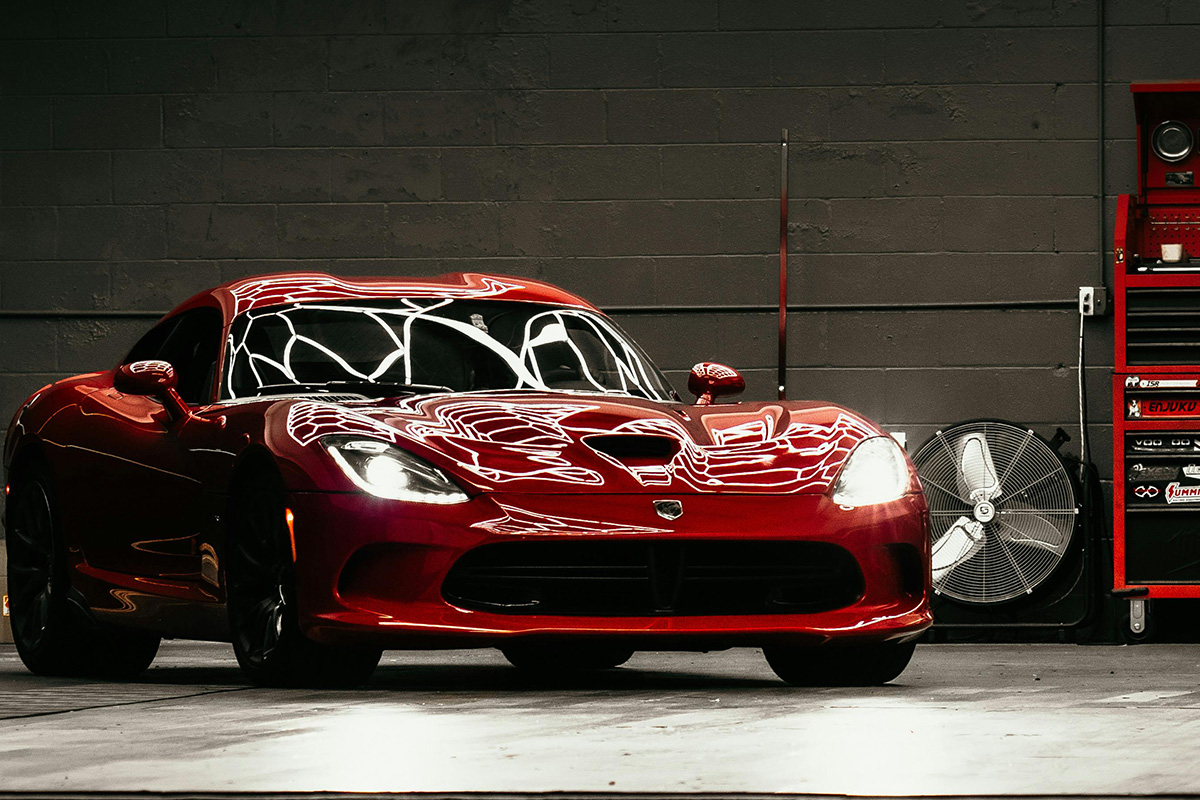When it comes to professional detailers, it’s not just about having the right polish or ceramic coating — it’s also about having the right tools to understand and treat your vehicle’s paint safely and effectively.
If you’ve ever wondered what separates a true professional detailer from a weekend hobbyist, it often comes down to the tools they use to assess and measure your paint before any correction or coating work even begins.
Let’s take a closer look at two critical tools used by high-level detailers: the Paint Thickness Gauge and the Rhopoint Gloss Meter — and why they matter for your car.
Paint Thickness Gauge: Knowing What You Can’t See
Before professional detailers ever touch a polisher to your car, they should know how much paint is actually on the surface. That’s where a paint thickness gauge comes in.
What It Does:
This tool measures the total thickness of your paint and clear coat, usually in microns (µm), giving the detailer a reading of how much material is available to work with.
Why It’s Important:
- Not all paint is the same — factory paint can vary from panel to panel, and repainted surfaces are even more unpredictable.
- If a vehicle has been corrected or polished in the past, there may be very little clear coat left, making it risky to do aggressive correction again.
- A good detailer uses this tool to map the car, identify thin spots, and tailor their polishing approach for maximum gloss and minimum risk.
Without this tool, a detailer is essentially working blind — and that’s a gamble with your vehicle’s long-term finish.
Rhopoint Gloss Meter: Measuring More Than Just Shine
Everyone loves that mirror-like finish after a detail, but how do you know it’s truly as glossy as it can be? That’s where a Rhopoint Gloss Meter comes in — a device used to scientifically measure gloss levels.
What It Does:
The gloss meter measures how much light reflects off the surface at specific angles, giving a quantifiable reading (usually in gloss units, GU) of the paint’s finish.
Why It’s Important:
- It takes guesswork out of the equation. Rather than saying “it looks better,” the detailer can prove that the surface has improved after polishing or coating.
- It helps detailers dial in their process, polish choices, and pad combinations for maximum results.
- It sets a benchmark — especially useful for comparing before-and-after or maintaining consistency across an entire fleet or high-end collection.
In short: the gloss meter is the difference between “looks shiny” and “measurably flawless.”
The Bigger Picture: Why These Tools Matter for Professional Detailers
When professional detailers invest in high-end tools like these, it means they’re not guessing — they’re making informed decisions that protect your car’s paint and deliver superior results.
Here’s what it means for you as a vehicle owner:
- Safer paint correction: No risk of burning through clear coat due to unknown thickness.
- Tailored process: Your vehicle gets a customized approach based on actual data.
- Proven results: You get visual and measurable improvements — not just smoke and mirrors.
- Greater trust: You’re working with someone who treats detailing as a science, not just a side hustle.
Detailing is about more than just polish and pads — it’s about precision. And precision starts with knowledge.
A detailer who uses a paint thickness gauge and a Rhopoint gloss meter isn’t just showing off fancy gadgets. They’re doing it to ensure your car’s finish is corrected safely, protected properly, and finished to the highest possible standard.
So next time you’re shopping for a ceramic coating or paint correction service, ask your detailer:
“How do you measure my paint and gloss levels?”
If they don’t have an answer — or the tools — it might be time to keep looking.


